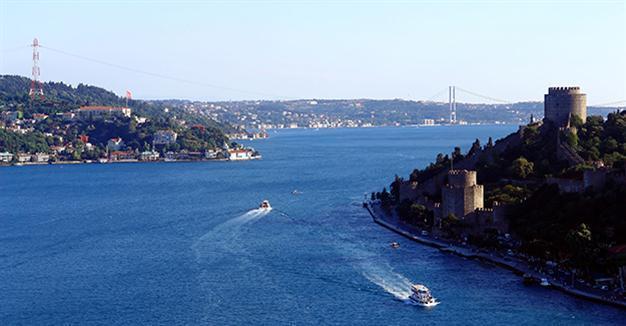Turkey to install devices to prevent maritime accidents on Bosphorus
ISTANBUL

The Marmara Research Center of Turkey’s top science body is set to install Acoustic Doppler current profilers (ADCP) on the Bosphorus in order to prevent maritime accidents, daily Vatan has reported.
The Scientific and Technological Research Council of Turkey (TÜBİTAK) has been tasked with installing the devices at six points across the Bosphorus Strait in order to prevent tanker ship collisions that take place due to difficulties in navigation caused by strong currents.
The ADCP will be placed at the bottom of the strait and measure current velocities using the Doppler effect of sound waves. The meter works by sending out a high frequency sound that returns to the ADCP after reflecting from small particles. The Doppler Effect predicts a shift in the reflection when small particles move in a current.
The new system will evaluate each ship’s capacity and the strength of currents based on immediate data and will either allow or deny passage to each ship.
Vatan reported that two ships belonging to a private company started on Jan. 25 to lay out the sensors in pre-determined spots across the strait and will complete the work by Feb. 15.
The system is designed to prevent dangerous maritime collisions on the Bosphorus, which can cause both physical and environmental damage. Reports indicate some 50 to 55,000 ships cross the Bosphorus each year, carrying some 150 million tons of freightage. Around 10,000 of these ships are oil tankers and their cargo accounts for some 100 million tons of the total freightage.
 The Marmara Research Center of Turkey’s top science body is set to install Acoustic Doppler current profilers (ADCP) on the Bosphorus in order to prevent maritime accidents, daily Vatan has reported.
The Marmara Research Center of Turkey’s top science body is set to install Acoustic Doppler current profilers (ADCP) on the Bosphorus in order to prevent maritime accidents, daily Vatan has reported.